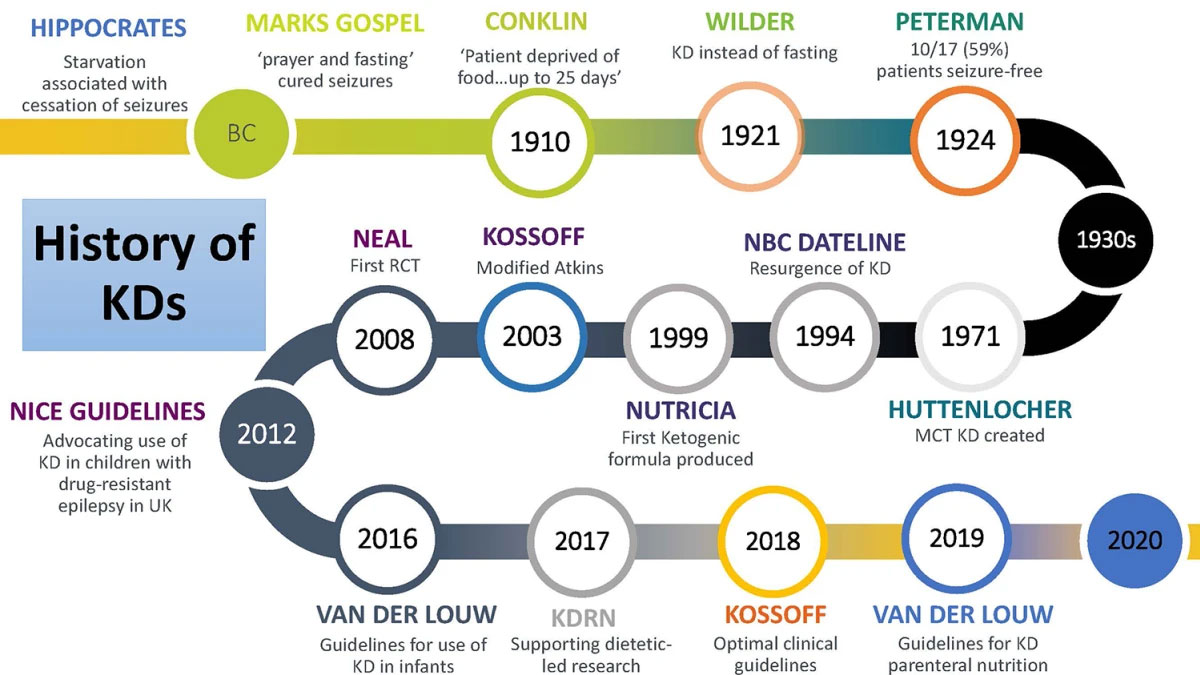William Banting, an English undertaker, tried fruitlessly to reduce weight IN THE MID-1800S. He continued to gain. Doctors advised him to follow the advice given to patients today: reduce calorie intake and increase activity. This was unsuccessful. Among his 20 failed attempts at weight loss, he had also used laxatives, diuretics, Turkish baths, and starvation diets.
Banting’s knees were in excruciating discomfort, and he also had an uncomfortable umbilical hernia that required frequent bandaging. He struggled up the steps, his breath short and his perspiration profuse. He was under five feet tall and over two hundred pounds. Banting needed solutions badly.
He scheduled a visit with Dr. William Harvey for a hearing issue one day. Harvey, a Paris-trained nutritionist, suggested a new Banting diet that includes meat, fish, and fowl as well as unlimited amounts of animal and dairy fat. Additionally, it contained a modest amount of toast and a few low-sugar fruits. Other desserts, sugar, or carbs were not permitted.
It was a sort of high-fat, low-carb diet, and it was effective. Banting shed fifty pounds in a year and experienced no negative side effects, unlike previous diets. This diet also increased his energy levels, relieved his knee pain, and lowered the gasping and excessive sweating he experienced after ascending steps.
Banting authored a brief book on his experience and the diet that transformed his life since he was so ecstatic about his weight loss. Due to the high level of interest in his work, it was published and translated into other languages. Banting became so well-known that the query “Do you Bant?” was interchangeable with “Do you diet?” When individuals considered dieting, they considered Banting.
EXPLORING HISTORY TO LEARN
It was not just Banting who recognized the advantages of a high-fat, low-carb diet. It turns out that generations of Inuit and Eskimo in the Arctic used this information to guide their everyday lives.
Vilhjalmur Stefansson, an anthropologist with Harvard training and a real risk-taker, set out on a lifetime journey in 1906. He spent a year residing among the Inuit in the Canadian Arctic and eating just what they did. They consumed about 75% of their calories as fat. It’s interesting to note that the lean meat portions were given to the dogs. Vegetables were only consumed during famine.
The health of the Inuit was enigmatic by modern standards. They weren’t overweight or ill. Despite the projected absence of vitamin C, there was no scurvy. Simply put, there were no health issues at all.
The meats, lipids, and animal components (such bone marrow) they consumed held the key. Practically every part of the animal was useful to them. The Inuit were healthy because all the essential nutrients were present.
In 1928, Stefansson and a friend entered a hospital in New York City and made a public commitment to consume only meat and water for a year. In the medical community, there was uproar and objections, but after three weeks of the regimen, they were allowed to return home and carry on the experiment there. They consumed the entire animal, including the brain, bones, organs, and meat since they believed they would provide them with the vitamins they required. A series of examinations a year later revealed that they were in excellent health, with no deficits, high blood pressure, scurvy, hair loss, or other side effects.
At that time, a number of medical centers (including Johns Hopkins, Cornell University, and the Mayo Clinic) were treating children with seizures with a similar diet that was high in fat and low in carbohydrates. Many individuals experienced great success and seizure-free periods. For many years, treating seizures, especially in children, with a ketogenic diet was a successful strategy.
The ketogenic diet gradually lost popularity until it almost entirely vanished in the early 1940s, when new seizure-controlling drugs were introduced to the market. Medication has nearly taken its place. (Incidentally, certain medical facilities continue to employ the ketogenic diet to treat and frequently even cure children’s seizures.)
The growth of the ketogenic diet was slowed by medical progress, but the labeling of fat as the “greatest killer of our age” was what ultimately put an end to the diet as a healthy option for anything.
A KILLER BRAND OF FAT
Ancel Keys, a biologist and pathologist at the University of Minnesota, held the view that dietary fat intake and heart disease were directly related in the 1950s. With reckless abandon, he explored this idea and conducted two different investigations involving several European nations that he believed validated his notion.
He picked nations for both courses that met his requirements. Keys exploited these studies and his charisma to promote the idea that fat was evil, a diet high in fat caused heart disease, and anyone who disagreed with his findings was a quack, despite inconsistent data, unequal measurements, concealing of crucial research, and outright contradictions. He eventually came to the conclusion that saturated fat was the primary factor contributing to heart disease. After all, saturated fats raised cholesterol, which in turn increased the risk of heart disease.
His reports were accepted by every medical organization and government agency involved in food. Fat was labeled a murderer. The recommended daily fat intake was reduced, and the low-fat, high-carb diet was no longer just advised it had been “proven” to be beneficial to health.
Of course, processed foods have to be lower in fat than before. It was necessary for other businesses to develop low-fat, skim, light, or lean variations of the standard. There have been new oils and butter spreads produced. In some ways, it didn’t really matter what it was or what the potential negative effects were; as long as it had little fat, it was considered “healthy.”
IT IS TRUE.
Avoiding saturated fats did not reduce the prevalence of heart disease.
Many scientists, researchers, and medical professionals came up along the road with wildly diverse theories. Few people avoided harm since Keys was an expert at undermining the credibility of anyone who questioned his conclusions. Keys labeled Stefansson, the explorer who had spent a year living among the Inuit and had demonstrated the validity of the ketogenic diet by following a year-long meat and water diet, as a quack. Since Stefansson’s work was dismissed, the ketogenic diet was thought to have perished with him when he passed away in 1962.
Nations that adopted the fat-is-bad mentality should at the very least be able to brag extraordinarily low rates of heart disease if nearly everyone (the government, medical associations, education system, media, food corporations, pharmaceutical companies, and doctors) participated. After all, doing the right thing for more than fifty years ought to have produced the desired outcomes.
That is regrettably not the case.
Exactly why not? In a nutshell, Keys was mistaken, the world took him at his word, and now everyone is paying the price.
Every doctor would concur that these illnesses are rapidly increasing if you were to compare our health today with the average health of individuals fifty years ago:
- Heart condition
- Diabetes type 2
- Overweight
- Alzheimer’s
- Alzheimer’s condition
- Blood pressure problems
- Children who have type 2 diabetes or pre-diabetes
- ADHD and ADD
- Metabolic disorder
- Treatable conditions
Numerous researches throughout the years have refuted the alleged link between saturated fats and heart disease. Although many of the researchers were made fun of, their conclusions have now been vindicated.
Alessandro Menotti, an Italian researcher who served as the principal investigator for Keys’ renowned Seven-Countries Study, reanalyzed the data in 1999. He discovered that sweets, rather than lipids, had a bigger impact on heart disease.
Keys, who is regarded as the “father of cholesterol,” most likely would not have gotten away with such subpar study today. Keys is also attributed as being the “father of the lipid hypothesis,” which is a claim that there is a link between cholesterol levels and the risk of heart disease. As one contemporary researcher commented, “To simply pick out the statistics that fit one’s theory is a fatal scientific sin.” Keys is also known as the “father of the lipid hypothesis.” The saturated fat debate links consumption of these fats to heart disease.
The public trusted Keys. But the picture painted by our current research is rather different. The medical director of the UltraWellness Center and Cleveland Clinic’s Center for Functional Medicine, Dr. Mark Hyman, claimed in an article that “we now know from the research that sugars and refined carbs are the true cause of obesity and heart disease not fats, as we’ve been told.” The metabolic switch is activated by carbohydrates, which results in an increase in the hormone insulin and fat storage, particularly harmful belly fat.
Even if scientists from all around the world came forward with evidence that Keys was mistaken, it was already too late. Almost everyone on Earth accepted the idea that obesity was bad.
Truthful research and facts, however, have a tendency of sticking around. A paradigm change is being aided by this obstinate resistance on the part of some medical professionals, researchers, dietitians, and even patients. While some lipids are quite inflammatory, others are really beneficial. For optimum health, the correct fats are essential.
Because Keys was so widely believed and because so much money was invested on his study, the paradigm shift is taking an unusually long time to take place.
Thankfully, the trend is still moving in the direction of a more wholesome diet.
THE KETOGENIC DIET IS BACK
Robert Atkins was among the medical professionals who advocated the high-fat ketogenic diet, which was in direct opposition to society and all things medical. In the 1960s, he established his cardiology practice in New York City. Although he was young, he was obese, lazy, and angry because he couldn’t control his body.
He learned about Dr. Alfred Pennington’s low-carbohydrate diet while searching for solutions. Atkins effortlessly shed pounds after adopting that eating plan. He was even employed by a business to assist its workers in losing weight, and he was highly effective at doing so.
IT IS TRUE.
The worse interesterified (IE) fats are frequently used to replace trans fats, which were outlawed because they were harmful to our health. To modify the melting point and prevent the oil from soon going rancid, the fatty acids in IE fats are transferred from one triglyceride molecule to another.
Atkins developed his low-carb, high-fat, high-protein diet over time. His diet later appeared in Vogue magazine as his notoriety grew, earning it the moniker “Vogue diet” for a while. Dr. Atkins’ Diet Revolution, a book that sold tens of millions of copies and went on to become the best-selling diet book of all time, was ultimately published by him in 1972.
The high-fat diet advocated by Atkins, who was called a “quack,” sparked controversy as was to be expected. He was insulted, derided, and threatened with having his medical license withdrawn. The lack of thorough studies Atkins had to back up his claims contributed to some of the pushback. Even though he had thousands of testimonials and proof that his method worked, including actual statistics from real people, the medical profession valued official research more than best-selling books and thousands of testimonies.
In April 1973, Harvard nutritionist Frederick Stare, who is regarded as one of the most important professors in the nation, provided testimony regarding Atkins to the Senate Select Committee on Nutrition and Human Needs. Any book that suggests eating an excessive amount of meat, butter, or eggs is harmful, he declared. “The author who offers the suggestion is negligent,”
In the 1990s and the beginning of the 2000s, Atkins had numerous opportunities to speak at medical conferences. He talked about diets and health. Atkins fractured his skull after slipping and falling on an icy pavement in 2003. 9 days later, he passed away.
A year after Atkins, Keys passed away in 2004. Despite strong international attempts to reduce dietary fat, heart disease rates rose over the course of Keys’ fifty years of research and analysis. In actuality, our situation has gotten worse since Keys began.
Atkins and many others who are speaking out against the low-fat, high-carb frenzy are on the correct track, according to new research and countless studies. Researchers from the fitness field Jeff Volek and Stephen Phinney conducted experiments to support their theories. Their findings included the following information about the Atkins diet among a host of other things:
- A low-carb diet is effective.
- The condition of your heart is unaffected.
- The high-fat portion of the diet really reduces the risk of diabetes and heart disease.
- An increase in HDL (the good cholesterol).
- Blood pressure, triglycerides, and inflammation decrease.
The idea put forth by Keys that fat, and particularly saturated fat, was the root of heart disease has been thoroughly refuted. More than 600,000 participants from 18 different countries were included in 72 of the top research on obesity and heart disease that were examined by Rajiv Chowdhury and his team. They definitively concluded that there was no evidence linking dietary fat or saturated fat to heart disease.
History cannot be changed by going back in time. The idea that fat is bad is still deeply ingrained as a “proven fact” in the minds of many people, but that ship has sailed and is now leaking like a sieve.
Yes, many still view fat particularly saturated fat as the enemy. Ask a doctor, and you’ll likely hear the same advice about limiting your intake of animal protein, eggs, butter, fruits, and vegetables, as well as taking statin medications to lower your cholesterol. And the majority of medical professionals still advise a low-fat diet for weight loss.
IT IS TRUE.
The consumption of saturated fat and heart disease are not related at all.
People will eventually learn about the advantages of a ketogenic diet, whether it’s because they’re desperate to get healthy or lose weight. They will then need to decide what they will believe and make up their minds.
A KETOGENIC DIET REVISED AND UPDATED
I have examined practically every diet there is in my more than 35 years of medical practice. I have learnt what does and does not work for weight loss through measurements, counts, and calculations. I have closely followed, counseled, and assisted thousands of patients in achieving and maintaining their health.
Even though Atkins’ diet was generally sound, I am recommending a ketogenic diet that is distinct from his for two main reasons:
- Protein: Consuming too much protein causes the body to turn the extra protein into sugar, negating some of the ketogenic diet’s advantages. Instead of processed meats, meats fed on grains, or fish grown in farms, choose for wild fish and grass-fed meats. These contain far too many poisons.
- Better fats: While eating any fat while on the ketogenic diet may help with weight reduction, it is far preferable to do so in the long run because healthy fats do not cause inflammation.
The Keto Lifestyle diet, in my opinion, is the healthiest one available. I believe that the food is more crucial than any supplements, workouts, or medications. Dietary food is what makes it effective. Nothing else comes close to it in terms of shedding pounds, getting over or controlling illnesses, and establishing a long-term healthy and balanced lifestyle.
You may now have a very real solution for loved ones who have struggled with weight reduction or who may suffer from cancer, type 2 diabetes, Alzheimer’s, Parkinson’s, an autoimmune problem, obesity, heart disease, or another illness.
You are aware that I cannot guarantee that every illness will be cured by the Keto Lifestyle diet. I might be held liable for that. But I’ll say it anyway: The Keto Lifestyle diet will go a long way toward aiding in the management, reversal, and occasionally even the cure of many ailments.
And the Keto Lifestyle diet is the best option if you want to lose weight. It performs amazingly well. And the advantages are out of this world.
Why are you holding out?








